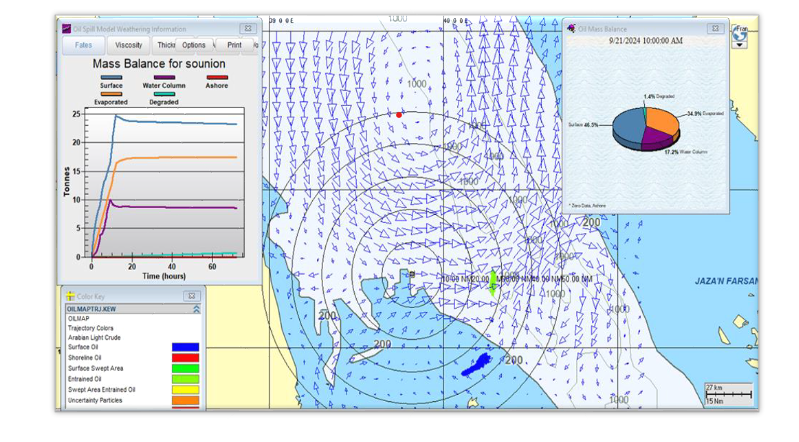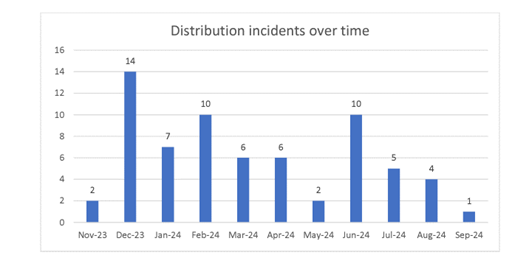Addressing the MV SOUNION Spills threats in the Red Sea
On August 21, 2024, the Greek-flagged SOUNION oil tanker, carrying 150,000 tons of crude oil, was attacked in the Red Sea, resulting in damage to the vessel and a significant environmental threat. In response, the Regional Organization for Conservation of the Marine Environment of the Red Sea and Gulf of Aden (PERSGA) and its Center for Emergency Mutual Aid (EMERSGA) have been assisting member countries to ensure preparedness for a potential pollution incident in their waters.
PERSGA and EMERSGA have established a working group with relevant stakeholders and organizations in and outside the region, including the United Nations ( UNEP, IMO, OCHA, JEU, ITOPF and RC offices), alongside oil spill experts. This collaboration aims to raise awareness of the risks posed by a substantial oil spill, which could jeopardize marine biodiversity, vital trade routes, and the coastal economies of countries border. Satellite imagery is being utilized to track and monitor the vessel’s status and for any potential spills.
In this context, PERSGA and EMERSGA’s capabilities have been activated and are currently in use. Advanced tools like OILMAP, supplied through the World Bank-funded SFISH project*, provide real-time data and predictive modeling to assess the potential impact of spills and assist in response planning, thereby effectively mitigating environmental damage. Ongoing monitoring efforts are conducted in collaboration with the United Nations to monitor salvage operations, including putting out the fires and evaluating the vessels’ current status in order to reduce threats and assess the response options.

Figure 1 Trajectory spill model after 3 days simulation (simulation Spill Starts: 2024 Sep. 18 10:00)
Towing operations are being conducted under the supervision of the European Union’s naval mission, in coordination with key stakeholders. These operations pay particular attention to environmental risks and socio-economic implications.
The current situation could serve as a catalyst for enhanced regional and international cooperation on preparedness and response. Over the past eight months, the conflict in the southern Red Sea and Gulf of Aden has resulted in numerous damaged vessels and an increased environmental threat. In particular, the PERSGA/EMERSGA Center has provided guidance and support to member countries for the sunken RUBYMAR and TUTOR incidents, implementing the regional contingency plan and associated support. The effective operation of the oil spill trajectory modeling has significantly improved regional awareness and readiness. Figure 2 below shows the number of incidents between November 2023 and September 2024.
The development of a regional plan and capacity building, undertaken as part of the SFISH project, has proven beneficial, with workshops, exercises and training for specialists conducted across the region. The regional plan offers supporting guidance and a standardized response system to address incidents in the region.

Figure 2: Distribution incidents over time. (until 28 June) (Source: *IMO) www.imo.org
The regional project “Sustainable Fisheries Development in the Red Sea and Gulf of Aden” (SFISH), financed by the World Bank and executed by PERSGA, aims to strengthen capacities and enhance regional collaboration in the management of marine fisheries and aquaculture in the Red Sea and Gulf of Aden.
